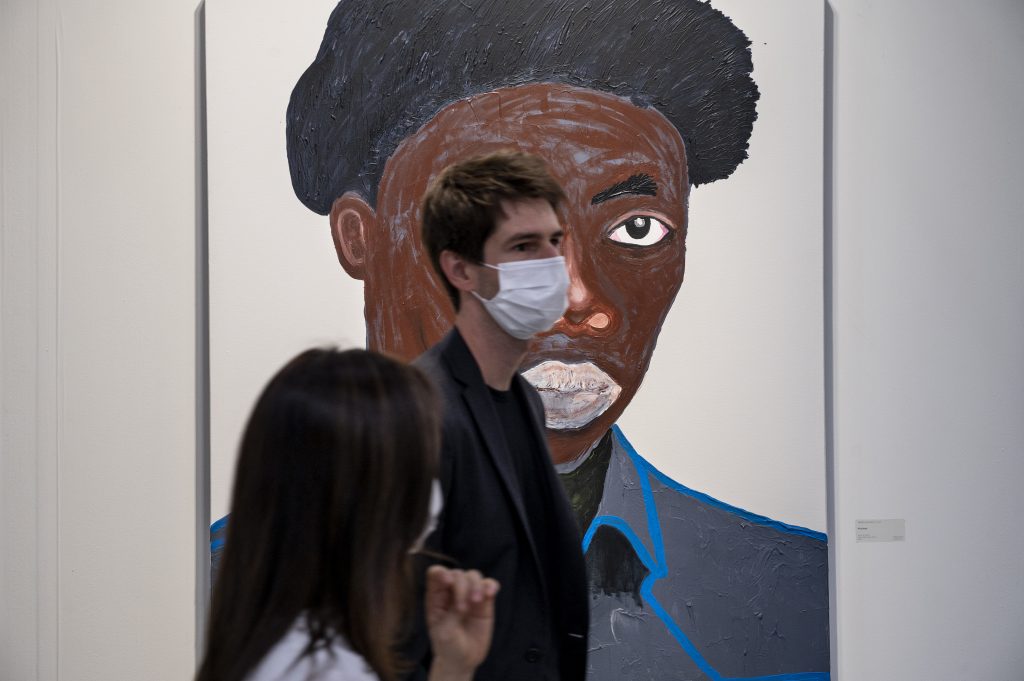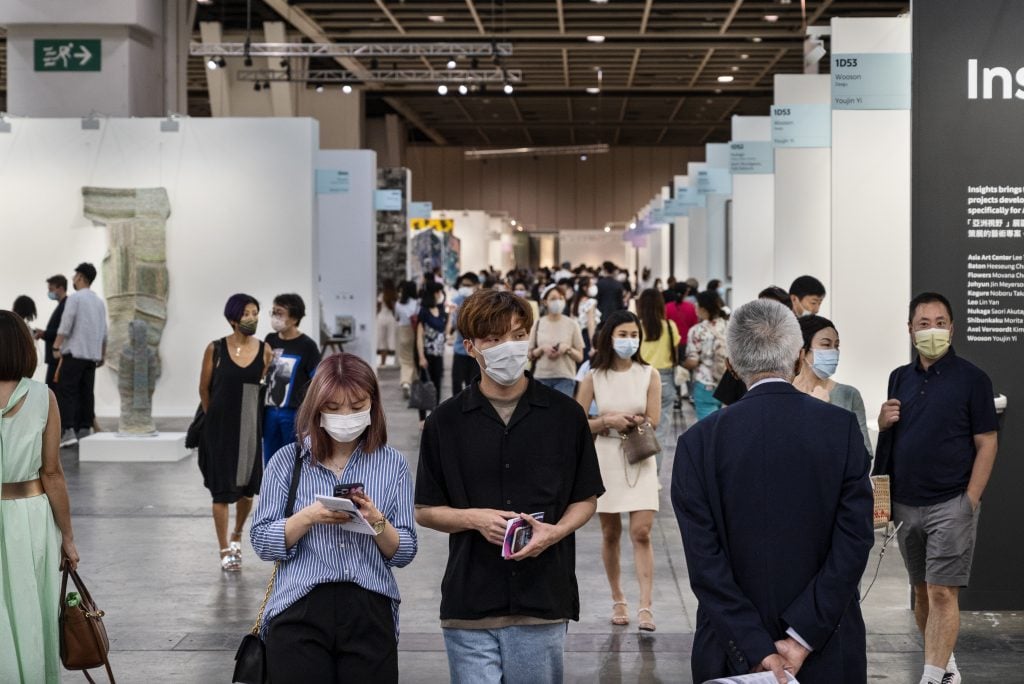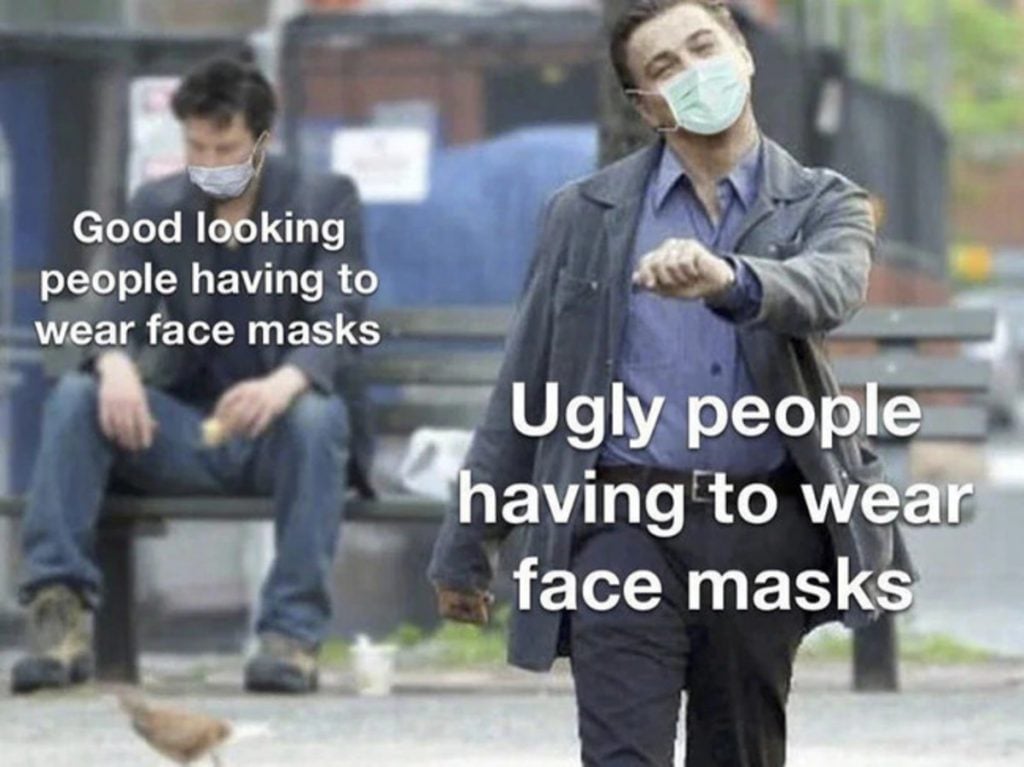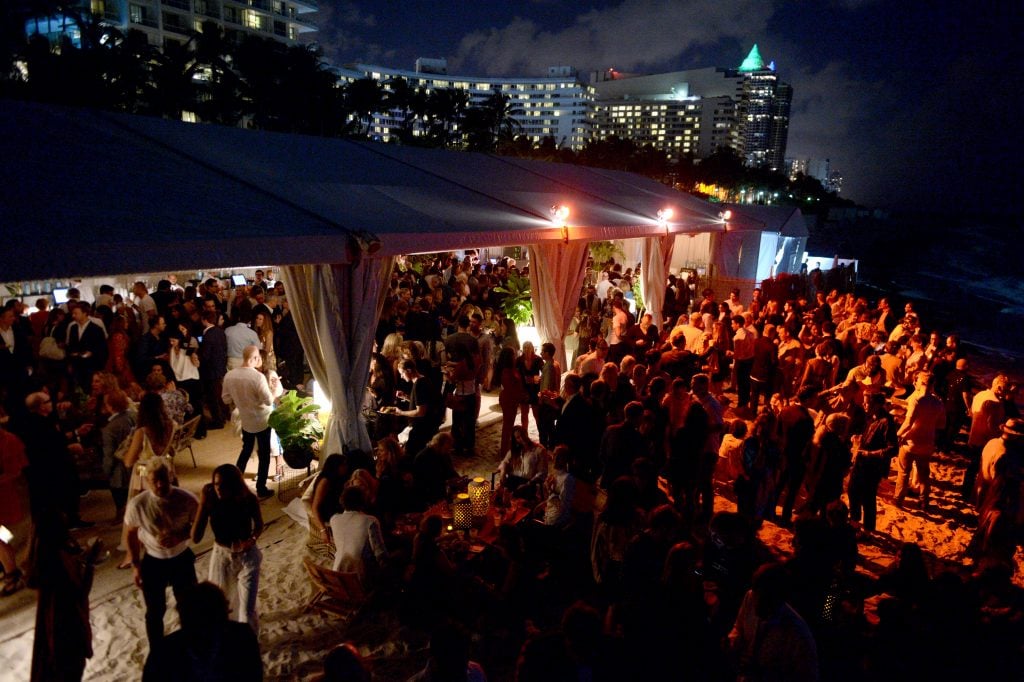Art Fairs
Are Elbow Taps Acceptable? Should We Make Small Talk in a Mask? Here Are the New Rules of Art-Fair Etiquette in 2021
Don't panic, we've got you.

Don't panic, we've got you.

Janelle Zara

Miami Art Week is fast approaching, and with it the return of Art Basel Miami Beach and assorted satellite fairs for the first time since 2019. But the resumption of business as more-or-less usual poses an important question: Do we remember how to act? If our social skills have atrophied over the course of the pandemic, the guidelines of proper etiquette have also changed, simply as a matter of public safety. The old rules no longer apply, and we’ve got some new ones to figure out: When is it appropriate to hug versus elbow tap? How do you enter and exit a conversation? Is it OK to ask your makeout partner at Twist their vaccination status? For these decidedly first-world queries, we’ve assembled a cheat sheet for safe socializing to pack alongside your mask, your hand sanitizer, and your sunscreen.

Masks were required at Art Basel Hong Kong last May. Photo: Miguel Candela/SOPA Images/LightRocket via Getty Images.
Art fairs, being the international affairs that they are, have never had a uniform greeting. “It’s two kisses with the French, three with the Swiss, and in New York, you just extend the hand and shake—which is hard to get used to,” says OMR director Ana Paula De Haro. The cross-cultural confusion has only been exacerbated by new contactless additions to the lexicon: the fist bump, the elbow tap, the meek wave from a distance—all of which led to several awkward moments for De Haro last year. “I approached some clients with a hug and kiss who said, ‘No, no, no, no, no, no, please don’t!’” she recalls. “And that’s fine. You just have to laugh and say, ‘Oops, I’m sorry. This is how we say hello in Mexico.’”
The right greeting depends on comfort level, which varies from person to person. But the key to avoiding awkward mishaps is aligning with your partner. If you’ve never particularly enjoyed physical greetings, the good news is, now is your time to opt out without shame; if you’re the more effusively inclined, allow the other person to establish their boundaries and follow suit.
“I normally like to hug, but when somebody throws their elbow at you, you just throw your elbow back,” said Mills Morán of Morán Morán.
Tiana Webb Evans, founder of the art strategy firm ESP Group who also prefers an affectionate squeeze, now also errs on the side of caution: “If there’s no immediate gesture, I always wait,” she said. “Embrace the pregnant pause. You can even ask, ‘Are we hugging?’ It may be awkward, but it’s better than leaning in to hug someone just for them to jump back from you.”
And people, please use common sense: if anyone is double-masked or firmly planted six feet away, do not go in for the air kiss!
This year, Art Basel Miami Beach is requiring masks for all attendees ages two or older, which will likely result in “a degree of face-blindness,” said Ashley Carr of Modica Carr Art Advisory. Naturally, “don’t be offended if you are not recognized right away.”
But for the germaphobic and generally introverted, the mask imparts an anonymity that functions like a shield—imagine gliding through the fair undetected, invisible to those you dislike. For acquaintances you do not remember meeting, the mask provides a plausible excuse for the lack of recognition, and pulling the mask down to reveal your face at a distance is a gesture that borders on flirtation, like a wink from across the room.
For Nicodim Gallery director Ben Lee Ritchie Handler, “If I can’t recognize your face behind the mask, your name is Gorgeous now—as in, ‘So great to see you, Gorgeous! It’s been too long.’”

Frequent fair-goer Leonardo Di Caprio. Via Reddit.
Small talk, like alcohol, is an essential social lubricant at art fairs—the difference being art dealers actually enjoy alcohol. It seems they’ve always found small talk during initial sales hours a loathsome chore (“We have deals to close, and every second counts,” De Haro said), but expect the overall appetite for mindless chatter this year to be especially low. “All the fairs have been condensed into a four-month period, and it’s really straining the galleries in terms of staffing and just mental fragility,” notes Morán. “So yes, we have a lot less patience when people are not serious or just want to talk about the weather.”
As a seasoned fair veteran, De Haro offered a few helpful phrases that put an end to unwanted chitchat—for example, when VR technology salesmen recently approached her at a fair to pitch their latest projects: “Very politely, I say, ‘So sorry. This is my card. I’d love to hear more at another time. Come back Friday?’”
Of course, the most refined art is never engaging in empty pleasantries to begin with. “I’m embracing the wave—it’s an indication that I’m not coming over to talk,” Webb Evans said. Selective engagement not only minimizes exposure, but burnout during a marathon week: “Since Covid, since quiet time, since all of the traumas that have happened, I don’t have the same capacity for small talk. I’m just not interested.”
Avoiding small talk, however, is not the same as being antisocial. On the contrary, it prioritizes meaningful conversation, especially with the friends we’ve missed over the last two years. As Amy Adams, of Adams and Ollman gallery, said, “We are eager to discuss art and ideas in person after such a long absence.”
While studies have shown that trauma bonding can strengthen relationships, Webb Evans advises against it; although the pandemic is far from over, we are very, very over talking about it. “If you’re about to see 100 people in a day, you cannot talk about all the trauma 100 times,” she says. “It is really important to start talking about things that are generative. I like to ask people what they’re excited about. I think it’s a really simple and elegant start to a conversation.”
(If all else fails, resort to “How about this weather?” It will rain at some point, and people will have feelings about it.)

The White Cube party at Soho Beach House in the Before Times (2017). Photo: Andrew Toth/Getty Images for Soho House)
Plied with sun and alcohol, we’ll all inevitably slip into some social gaffe over the course of the week, but what’s important is to not break stride. For example: “Standing in the booth for eight hours a day for five days, it’s impossible to remember everybody,” says Morán. “So I never say ‘Nice to meet you.’ I say ‘Nice to see you,’ and that kind of covers all the bases.” (Don’t forget: you can blame your hazy recognition on the masks!)
In the event that someone fails to recognize you, graciously take the loss rather than wallowing in indignation. “Reintroduce yourself as a courtesy,” advises Marcella Zimmerman of Cultural Counsel. “Do not shriek, ‘WE’VE MET BEFORE!!!’”
Do read the room. “If you are in a booth, simply making small talk, and you notice someone waiting for the gallerist’s attention, stepping aside or saying that you will stop back later is surely appreciated.”
—Suzanne Modica, Modica Carr
Do have a game plan. “If you want to have the most fun, ask yourself ‘What would Henry Taylor do?’”
—Ben Lee Ritchie Handler, Nicodim Gallery
“Don’t ask to be invited to a party that you didn’t get an invitation to. It kills me every time.”
—Nina Johnson, Nina Johnson Gallery
“Do offer hand sanitizer to colleagues and clients as a courtesy and practice of good hygiene. Don’t lather yourself in perfumed Purell like you are going to a party at the Roxbury.”
—Anton Svaytsky, Fragment Gallery
“Don’t offer drugs to sober people.”
—Daniel Gibson, painter
“Don’t chase concerts or events you wouldn’t bother attending back home. And don’t ask any existential questions while in Florida. ‘Do I need to re-apply sunscreen?’ And, ‘Am I hungry?’ That is the depth of your internal struggle until December 5th.”
—Bill Powers, Half Gallery